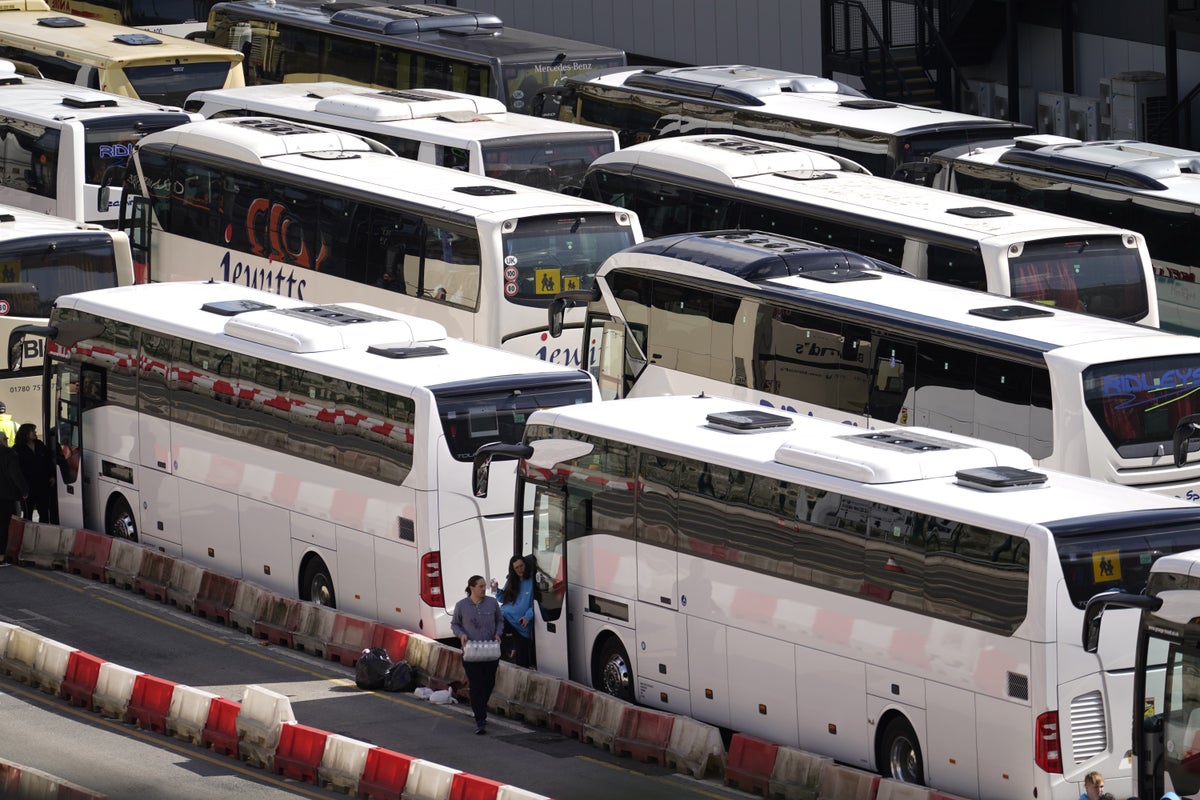
Easter travellers crossing the Channel from Dover should have a better journey than many experienced last weekend, the port’s CEO has said.
Thousands of coach passengers, many of them on school trips to the Continent, waited for 12 hours or more at the beginning of the Easter school holidays. Extended border control processes following Brexit have sharply increased the time it takes to clear a coach.
Doug Bannister, chief executive of the Port of Dover, apologised for “the disruption for the school kids and the anxious parents at home”. But ahead of the busiest Easter weekend since 2019, he told The Independent that there should be fewer coaches passing through the port – and that they should be more evenly distributed across the weekend.
The facilities available for processing coach passengers will be temporarily expanded, with a marquee installed in addition to the existing coach hall for departing passengers.
Since the UK left the European Union, Dover has become an external EU frontier. Border formalities are “juxtaposed” – with French officials examining and stamping each British passport, in line with the UK request for citizens to become “third-country nationals”.
Mr Bannister told The Independent: “There is clearly no doubt that the processing through the border takes more time now than it did before.
“Because this [last weekend] was the first real test of the coach traffic, what we need to do is step back and be a bit more cautious than we had been – so we can understand exactly what it is that we require.
“We’ll work together with our ferry operators and other authorities such as Police aux Frontières to determine what’s the maximum amount that we can handle safely and then we’ll start ratcheting up from there. That’s the intention.
“As it stands right now, Good Friday is going to be the busiest for coach traffic – the busiest of the three days. It is that day that we’re looking to try and smooth out a bit.
“But we’re not stopping there. We’re also installing some new temporary coach-processing infrastructure in the port and working with Police aux Frontières to be able to man that in a good way – so that we can have some resilience in the operation, to make doubly sure that the processing for this weekend for coaches is going to work much better.”
Coach and car drivers are being advised not to arrive early for sailings.
Three ferry companies – DFDS, P&O Ferries and Irish Ferries – compete from Dover to France.
Coach operators prefer the “short straits” crossings serving Calais and Dunkirk to longer sailings in the western Channel.
Graham Vidler, chief executive of the Confederation of Passenger Transport, said: “Coach is the most efficient and environmentally friendly way of moving large numbers of people across the Channel.
“Port of Dover needs to work with all parties to properly resource border control checks and the efficient embarkation of people and vehicles on to ferries.”
Eurotunnel also carries coaches, but the coach industry reports that capacity has lowered and fares have risen recently – increasing pressure on Dover.







